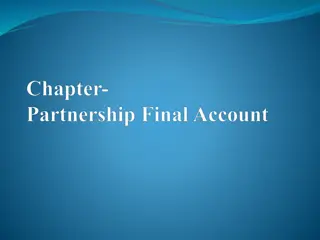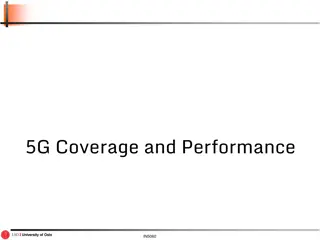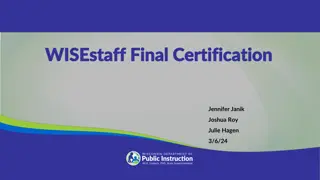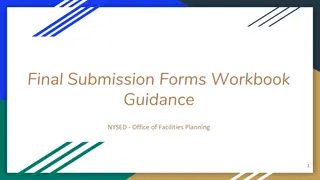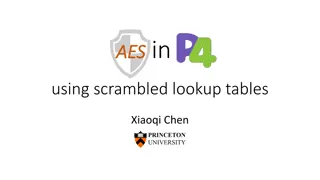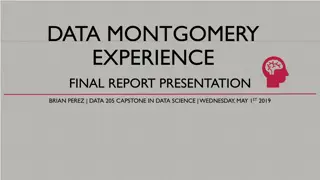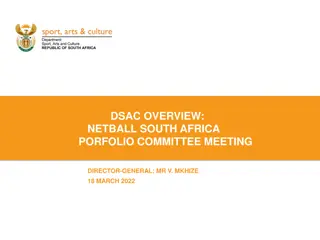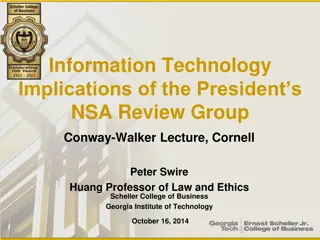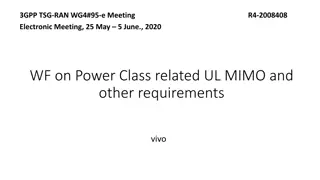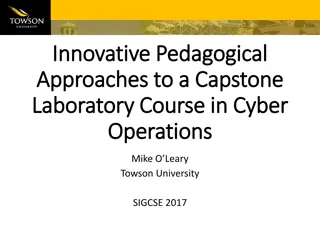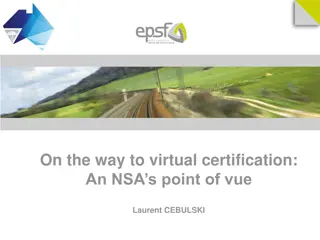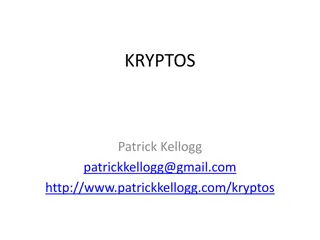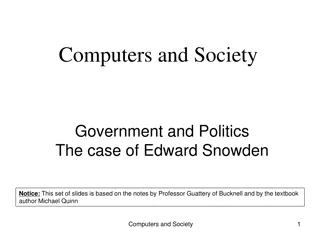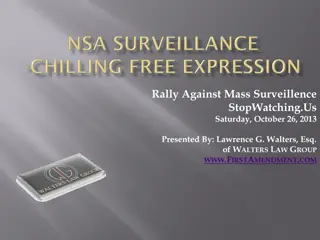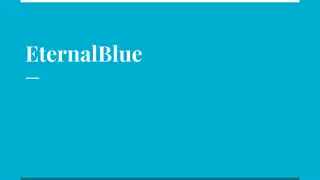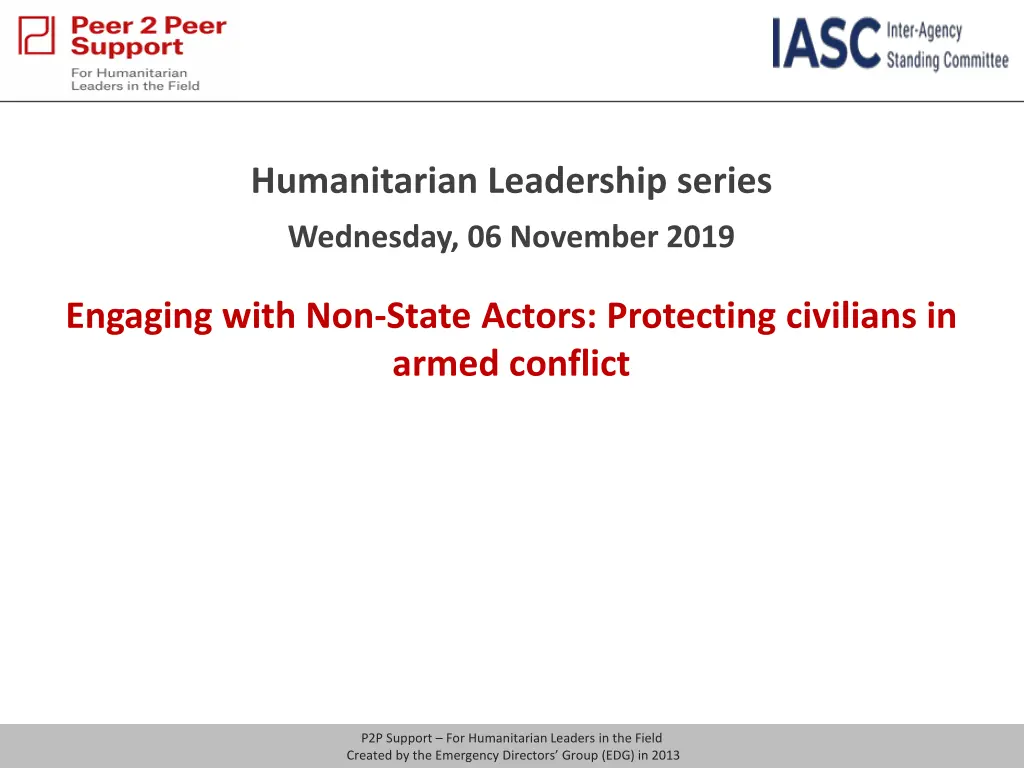
Engaging with Non-State Actors in Humanitarian Leadership
Explore the webinar on engaging with non-state actors to protect civilians in armed conflict, featuring insights from humanitarian leaders and discussions on the challenges faced. Learn about Geneva Call's focus on dialogue with armed non-state actors and the importance of their engagement. Gain valuable knowledge on the changing nature of contemporary conflicts and the role of armed groups in humanitarian law. Discover the global impact of Geneva Call's efforts in 14 countries.
Download Presentation

Please find below an Image/Link to download the presentation.
The content on the website is provided AS IS for your information and personal use only. It may not be sold, licensed, or shared on other websites without obtaining consent from the author. If you encounter any issues during the download, it is possible that the publisher has removed the file from their server.
You are allowed to download the files provided on this website for personal or commercial use, subject to the condition that they are used lawfully. All files are the property of their respective owners.
The content on the website is provided AS IS for your information and personal use only. It may not be sold, licensed, or shared on other websites without obtaining consent from the author.
E N D
Presentation Transcript
Humanitarian Leadership series Wednesday, 06 November 2019 Engaging with Non-State Actors: Protecting civilians in armed conflict P2P Support For Humanitarian Leaders in the Field Created by the Emergency Directors Group (EDG) in 2013
Ground Rules for the webinar: The audience should stay on mute through the course of this webinar. Please have your camera turned off at all times during the webinar. Please use the chat box on the right hand side of your WebEx window to communicate with everyone on this webinar. We encourage you to use the Q&A box on the right hand side of the screen to ask Questions for the panellist. Also please note that we will be running two polls during the course of this webinar, your response is valuable in delivering better on our future webinars. We will be recording this webinar and an edited version will be uploaded on to www.deliveraidbetter.org. You can find other P2P webinar recording on there as well. P2P Support For Humanitarian Leaders in the Field Created by the Emergency Directors Group (EDG) in 2013
Mr. Hichem Khadhraoui Director of Operations, Geneva Call Mr. Antoine Grand Deputy Director of Operations, ICRC Ms. Najat Rochdi Team Leader & Director Peer2Peer Project FACILITATOR P2P Support For Humanitarian Leaders in the Field Created by the Emergency Directors Group (EDG) in 2013
Why does Geneva Call focus on the humanitarian dialogue with armed non-state actors (ANSAs)? Geneva Call is engaging ANSAs through a unique tool (Deed of commitment) The nature of contemporary conflicts has changed Out of 55 armed conflict, 38 conflicts involved armed non-State actors in 2017. (Source: War Report 2017)They are key actors of contemporary conflicts P2P Support For Humanitarian Leaders in the Field Created by the Emergency Directors Group (EDG) in 2013
Lack of knowledge and ownership of the law of armed conflict by armed groups Members of armed group are often former civilians and haven t been trained on the law of armed conflict and the protection of civilians. Nature of the international legal system Even if armed groups have responsibilities Humanitarian Law, the state-centric nature of the international legal system poses challenges for regulating their behavior. under International P2P Support For Humanitarian Leaders in the Field Created by the Emergency Directors Group (EDG) in 2013
Geneva Call is active in 14 countries P2P Support For Humanitarian Leaders in the Field Created by the Emergency Directors Group (EDG) in 2013
Geneva Call focus Areas Protecting children and prohibiting the use of child soldiers Protecting displaced people and prohibiting forced displacement Protecting the medical mission Protecting education, schools and universities Prohibiting sexual violence Banning anti-personnel mines Protecting cultural heritage P2P Support For Humanitarian Leaders in the Field Created by the Emergency Directors Group (EDG) in 2013
Why does ICRC engage with ANSAs and to what extent? Why: ICRC mandate and neutrality, as per the Geneva Conventions. We talk to all sides. Indispensable to access to all affected people, and encourage respect for IHL. Nature of today s conflicts (the vast majority being non- international armed conflict, with multiplication of NSAG). To what extent: The ICRC identified 561 armed groups of relevance worldwide. The ICRC engages 412 of those (72%). This includes all forms of contact: direct or indirect. P2P Support For Humanitarian Leaders in the Field Created by the Emergency Directors Group (EDG) in 2013
This is an average of 13 armed groups per ICRC delegation. The ICRC raised protection concerns (versus simply discussing of access or security) with 203 (49%) armed groups in 2019. Globally, armed groups have a neutral perception of the ICRC. This value however varies significantly from one region and form one type of armed group to the next. Two thirds of ICRC delegations engage with groups belonging to or influenced by self-described Jihadi movements. Around 100 armed groups operate places of detention. The ICRC is able to visit people detained by almost half of these groups. P2P Support For Humanitarian Leaders in the Field Created by the Emergency Directors Group (EDG) in 2013
Do you work in mediation and negotiation with ANSAs? GC through its engagement with ANSAs on IHL respect, is facilitating mediation and peace process talks as well as access negotiations. P2P Support For Humanitarian Leaders in the Field Created by the Emergency Directors Group (EDG) in 2013
Geneva Calls approach 1 - Humanitarian dialogue 2 - Protection of civilians 3 - Research and Policy Armed non-State actors Political and military leaders, officers, rank-and-file Civilian population Religious and community leaders, community-based and civil society organizations, affected communities Policy makers States, UN/NGO communities, academic circles Type of actors Increase their respect of the law of armed conflict, change their practices towards a better respect for the civilian population Raise awareness on the law of armed conflict so that they can influence armed non-State actors practices and better protect themselves Shape the debate, raise awareness, influence law-making to facilitate Geneva Call s work Objectives Lead a humanitarian dialogue Support the change of their internal policies to make them comply with with international norms Obtain signature of Deeds of Commitment or other commitments Train on the law of armed conflict and human right law Monitor violations of the law of armed conflict and of the Deeds Carry out capacity building workshops to make communities aware of their rights Lead awareness campaigns on the law of armed conflict Support community-based projects Facilitation of assistance services Write policy papers Lead field based studies Do public advocacy Activities Armed non-State actors better respect the law of armed conflict and improve practices towards civilian populations genevacall.org
Geneva Calls approach with armed non-State actors CHANGE IN Ownership of the rules 1 - Awareness 2 - Knowledge 3 - Policy 4 - Practice The ANSA is aware of Geneva Call s mission, has a basic understanding of international humanitarian norms, and is ready to work with Geneva Call. The ANSA has an advanced understanding of humanitarian norms and is ready to make a commitment to apply them. The ANSA has made a commitment to comply with humanitarian norms and changed its internal policies in order to do so. The ANSA behaves in accordance with its humanitarian commitments or policies which contribute to the protection of civilians. genevacall.org
How does ICRC engage with NonState Armed Groups? A very protracted, uncertain and difficult process. Requires time, patience, perseverance and reliability. A process that needs to be transparent with all (not on the whom, the when, the where and the how, but on the what and the why). We do this in numerous ways - both directly and through intermediaries, as well as during detention visits and even via social media channels. Tested methodology applied throughout the ICRC, in a contextualised way. And yes, it works, though not always as successfully as we would hope P2P Support For Humanitarian Leaders in the Field Created by the Emergency Directors Group (EDG) in 2013
What is P2P Support? Peer 2 Peer Support (P2P Support) teams purpose is to provide direct peer support to Humanitarian Coordinators (HCs) and Humanitarian Country Teams (HCTs) to strengthen the effectiveness of humanitarian response in the field. The project is a IASC tool and the project Director reports to the EDG and the ERC. Contact us: P2PSupport@un.org All webinar recordings are available on: http://www.deliveraidbetter.org/webinars/ P2P Support For Humanitarian Leaders in the Field Created by the Emergency Directors Group (EDG) in 2013


